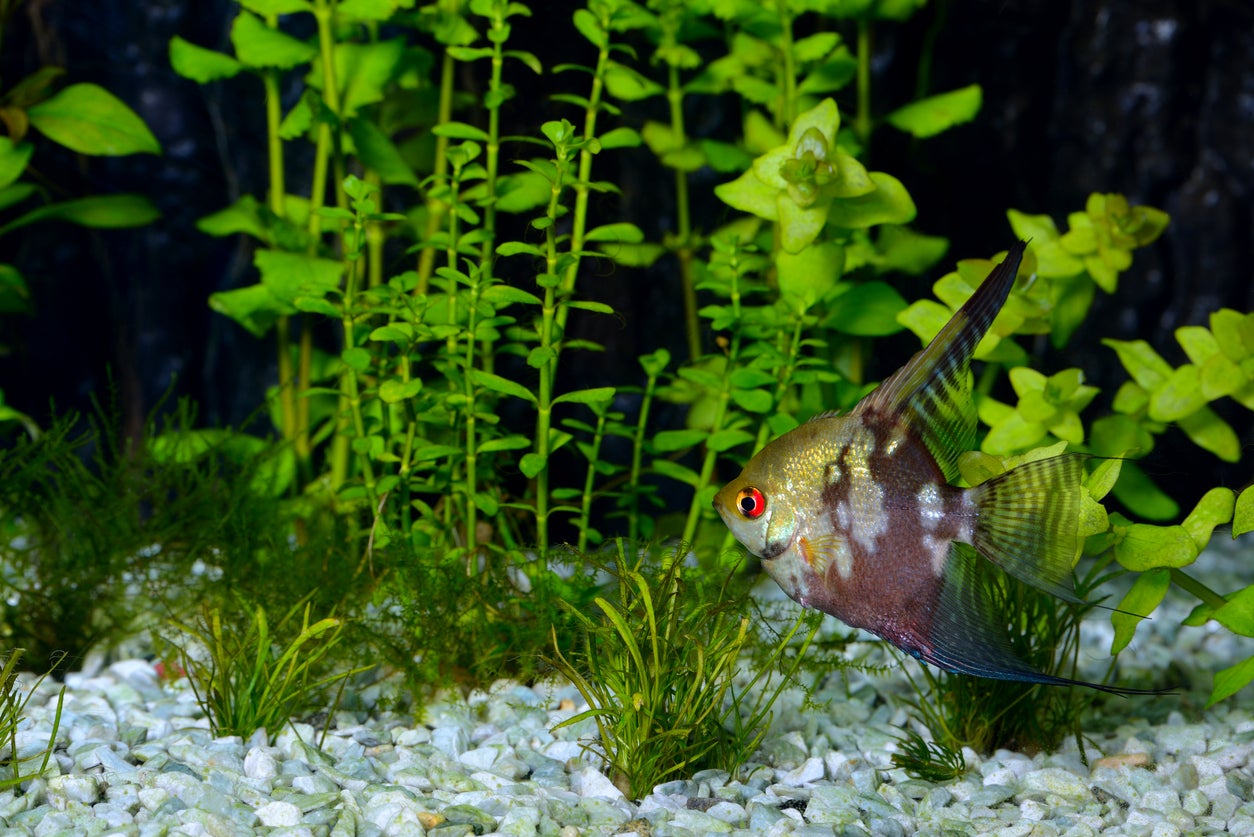Feeding Fish Plants – What Are Some Plants That Fish Eat


Sign up for the Gardening Know How newsletter today and receive a free copy of our e-book "How to Grow Delicious Tomatoes".
You are now subscribed
Your newsletter sign-up was successful
In their natural environment, both herbivorous and omnivorous fish are adept at finding edible plants, and “domestic” fish like fish plant food as well. Whether your fish are in an aquarium or a pond in your backyard, you can provide plenty of aquatic plants for fish to munch on.
Fish Plant Food Info
Edible plants for fish should be sturdy and safe, and if you’re feeding fish plants in an aquarium, they should be attractive to look at, even when they’ve been nibbled on. Plants that fish eat should also be fast growing, but not so aggressive that they take over the water habitat.
Plants That Fish Eat
Below are a few ideas of edible plants for fish:
- Hygrophila: Hygrophila is a hardy, fast-growing tropical plant. “Hygro” is good for beginners and is readily available in nearly any pet store. Pinch back plants if they grow too fast.
- Duckweed: Also known as “water lense,” duckweed is an attractive plant that grows quickly, especially if exposed to bright light. The small, round leaves float on the surface of the water or just below.
- Cabomba: Cabomba displays beautiful, feathery foliage with interesting, whorled leaves. This plant is available in red and green varieties. Bright light brings out the color.
- Egeria densa: Egeria densa is a common, fast-growing plant that most fish enjoy. This easy-to-grow plant also helps prevent the growth of algae. This plant should be limited to aquariums, as it can become invasive in ponds or other bodies of water.
- Aponogeton: This plant grows from bulbs, sending leaves to the surface of the water. Aponogeton often produces attractive flowers if light is bright enough. Several species are available.
- Rotala: An undemanding, sturdy aquatic plant with soft leaves that fish love to nibble. Rotala is available in several species, including one that turns bright red if exposed to adequate light.
- Myriophyllum: Myriophyllum is a fast-growing, fan-shaped plant with bright green leaves and feathery red stems. Parrot feather is the most common species used.
- Nymphaea lotus: Commonly known as water lotus, nymphaea lotus is an excellent fish plant food. The plant is also attractive, with fragrant blooms and leaves with reddish brown or purple markings.
- Limnophila: (Formerly known as Ambulia) Limnophila is a delicate aquatic plant that grows relatively quickly in good light but tends to get long and leggy in too much shade.
- Water sprite: Water sprite is a lovely aquatic plant that grows on the surface of the water. This tropical plant is not only beautiful but also helps prevent algae.
Sign up for the Gardening Know How newsletter today and receive a free copy of our e-book "How to Grow Delicious Tomatoes".

A Credentialed Garden Writer, Mary H. Dyer was with Gardening Know How in the very beginning, publishing articles as early as 2007.